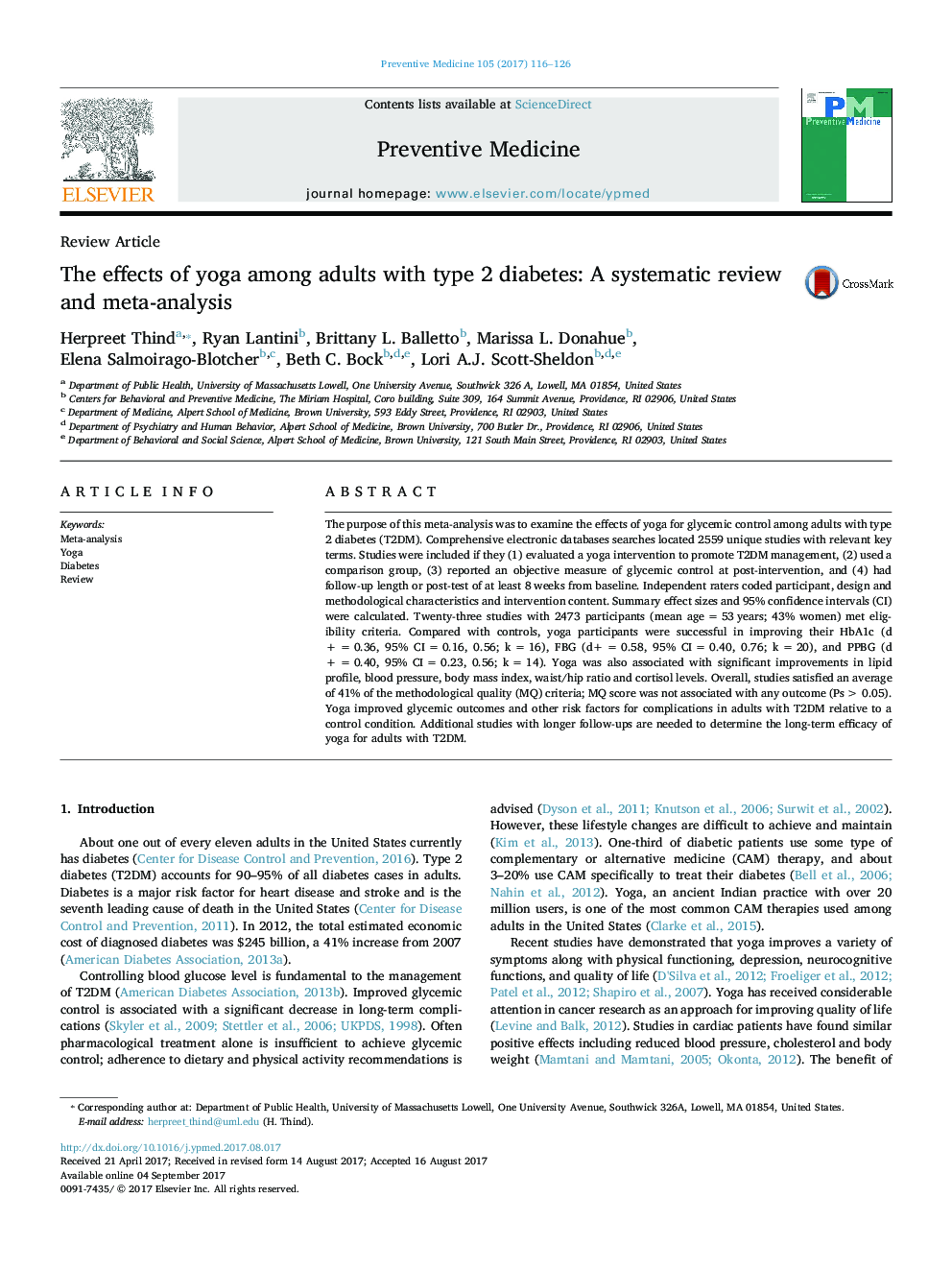| Article ID | Journal | Published Year | Pages | File Type |
|---|---|---|---|---|
| 5635456 | Preventive Medicine | 2017 | 11 Pages |
Abstract
The purpose of this meta-analysis was to examine the effects of yoga for glycemic control among adults with type 2 diabetes (T2DM). Comprehensive electronic databases searches located 2559 unique studies with relevant key terms. Studies were included if they (1) evaluated a yoga intervention to promote T2DM management, (2) used a comparison group, (3) reported an objective measure of glycemic control at post-intervention, and (4) had follow-up length or post-test of at least 8 weeks from baseline. Independent raters coded participant, design and methodological characteristics and intervention content. Summary effect sizes and 95% confidence intervals (CI) were calculated. Twenty-three studies with 2473 participants (mean age = 53 years; 43% women) met eligibility criteria. Compared with controls, yoga participants were successful in improving their HbA1c (d+ = 0.36, 95% CI = 0.16, 0.56; k = 16), FBG (d+ = 0.58, 95% CI = 0.40, 0.76; k = 20), and PPBG (d+ = 0.40, 95% CI = 0.23, 0.56; k = 14). Yoga was also associated with significant improvements in lipid profile, blood pressure, body mass index, waist/hip ratio and cortisol levels. Overall, studies satisfied an average of 41% of the methodological quality (MQ) criteria; MQ score was not associated with any outcome (Ps > 0.05). Yoga improved glycemic outcomes and other risk factors for complications in adults with T2DM relative to a control condition. Additional studies with longer follow-ups are needed to determine the long-term efficacy of yoga for adults with T2DM.
Keywords
Related Topics
Health Sciences
Medicine and Dentistry
Complementary and Alternative Medicine
Authors
Herpreet Thind, Ryan Lantini, Brittany L. Balletto, Marissa L. Donahue, Elena Salmoirago-Blotcher, Beth C. Bock, Lori A.J. Scott-Sheldon,
